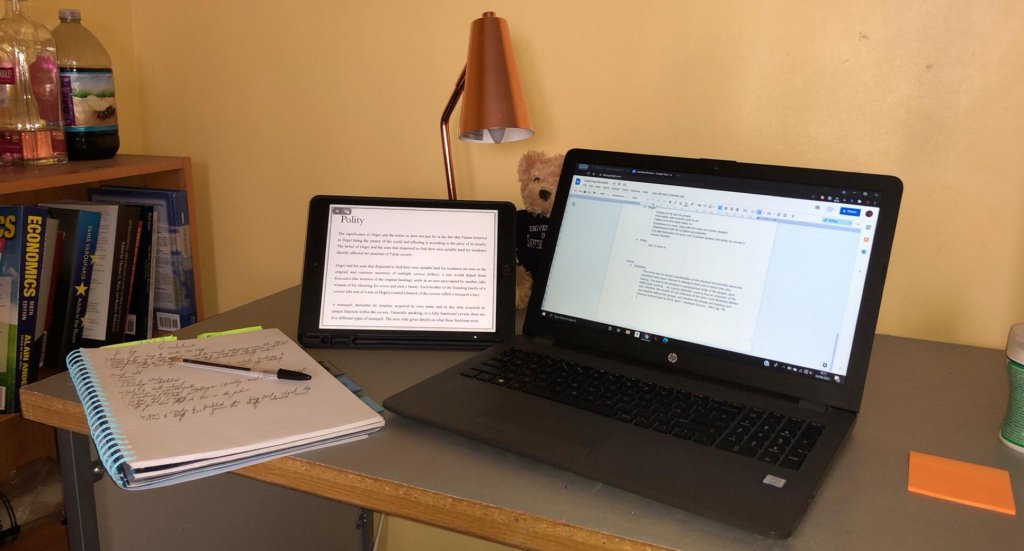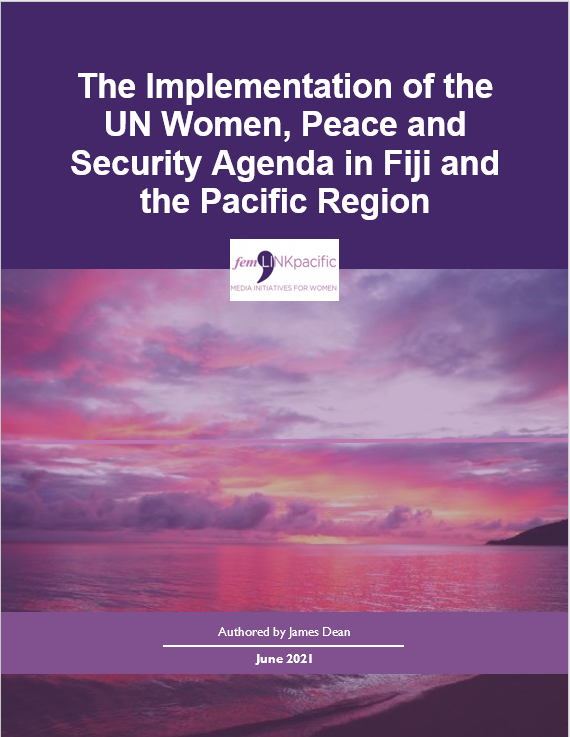Bula! My name is James Dean and I am a recent graduate of International Relations at the University of Southampton. I knew I would feel at a loose end if I finished my degree and had nothing to sink my teeth into straight afterwards, so I began looking for internship opportunities. However, with the ongoing situation regarding COVID-19, there was a lack of suitable roles. As if the universe was aware of my struggle, an email about the Think Pacific virtual internship (VI) programme popped up in my inbox. As someone who is interested in the field of International Development (which is just one of many pathways to choose from), I jumped at the opportunity to join the Think Pacific programme this summer, applying for the 4 week VI scheme. I knew it was a great opportunity both to discover the field of International Development and to get a feel for a virtual professional working environment, which is becoming much more of a commonality these days.
Think Pacific is a non-profit organisation that partners with a variety of different organisations in a broad range of sectors in order to give interns the opportunity to incite change in Pacific communities, improving Fiji’s compliance with its own development plan as well as the UN’s Sustainable Development Goals. As a student in the school of political science, a few partner organisations that I found particularly impressive were the Fijian ministries of Education and Health, the Pacific Community (SPC), and the organisation that I completed my action project for, femLINK Pacific, which acts as a feminist “catalyst for change through the use of accessible media and information”, promoting gender justice, ecological sustainability, peace, freedom, equality and human rights.
The purpose of this blog post is to provide an account of my experiences with Think Pacific to inform potential interns, including a few tips along the way!
The first stage of the Think Pacific Internship involves the completion of ‘learning modules’, which cover everything from becoming familiar with the technology used by the team (Slack, Zoom and Google Calendar) to culture, politics and demographics. There are also pathway-specific learning modules based on the kind of route you want to go down with your action project, whether that be International Development, Sport, Education, or many more. The team provides all of the information needed to complete the work in week 1, including video presentations, textual information and academic readings. I personally found this week to be the most challenging in terms of workload, which provided me a great opportunity to work on my time management skills, but also the most interesting as I was able to really absorb all of this new information about Fijian culture and history from my bedroom.

The second stage involved selecting a shortlist of 3 action projects, which were then discussed in a 1-to-1 meeting with my mentor in order to narrow it down to a single project. It was in this phase that I decided to partner with femLINK Pacific to write a research report for them assessing the success of the Pacific region in implementing the ‘Women, Security and Peace Agenda’. I chose this project because I felt that it provided an opportunity for me to develop skills, such as researching and report writing, which are relevant to possible future career options. I also felt that my experience as a student of International Relations, which involved studying Pacific politics, gender politics and security, would allow me to present a new perspective to the team over at femLINK. A tip that I would have for any interns about to embark on their Think Pacific VI is to sort this stage out ASAP! Apart from the extra weekly sessions (Q&As, cultural awareness classes, virtual coffees and briefings), the ‘decide’ phase only involves selecting your project, and so doing this relatively quickly frees up even more time to spend researching and completing the work for your action project.
The third stage of the VI is the phase in which you complete your action project. This stage is pretty hands-off in terms of support which really gave me a chance to develop my independent learning skills. I found that this stage particularly lends itself to networking as it is not uncommon for other interns to be working on the same project as you (despite these projects being individual). Therefore, it is great to share ideas and resources so that everyone can produce a better quality project. I found this stage to be particularly engaging as I was researching a topic that sparked genuine interest in me. I also loved that I was able to design my own report cover and format my work in whatever way I wanted rather than being bound to the boring 12pt Times New Roman double spaced format. My tip for this stage is to work out how long you think the work is realistically going to take and then stick to a tight time schedule. For 4 week interns, this stage can come with a bit of time pressure, which I definitely felt as I was writing a report which turned out to be around 4000 words. However, the Think Pacific team are really helpful and reassuring when it comes to time management, which has always been a huge problem for me, and they even teach time management skills in week 1.

The final stage of the Think Pacific VI is the ‘Deliver’ stage, which I completed in my fourth week. This involves presenting your action project in any way you see fit, whether that be talking through the document(s) you created or creating a presentation (I went with the latter). I found this final stage to be useful in consolidating the knowledge that I had gathered and written in the week prior. I presented my project by screen recording via zoom and submitting it as an mp4 file (to those of you with presentation anxiety, your project is not presented in front of anybody and you can retry as many times as you like). This week was bittersweet for me as I was proud to complete my action project and present it to femLINK Pacific, but it also meant that my time at Think Pacific was coming to an end.
One issue I had to overcome was the work-life balance. As restrictions began to ease across the UK (considering I took part in the VI scheme in June 2021), I found myself making a lot of plans with my coursemates in Southampton as we were soon to part ways after completing our studies. I didn’t want to be unable to see my friends in this socially important time, but I knew I had important commitments to my internship. Luckily, the flexibility of the Think Pacific Programme allowed me both to attend social events and input a sufficient amount of time and effort into my action project. All of the meetings, culture sessions, Q&As and briefings are recorded and uploaded to allow for asynchronous participation and mentors are often available for a call or are always accessible via Slack DM. This all means that the programme is very much accommodating of personal commitments such as work, caring responsibilities and even your social lives.
A tip I would have for anyone who is considering taking up this opportunity, or for anyone who has already received a place but is yet to start their internship, is to really take this opportunity as a chance to network with other interns. You have access to people all over the country (and the world) who are interested in the same subject, and therefore potentially the same career pathway as you. It’s a great opportunity not only to make friends but to discuss your action projects and possible post-university options. During my time with Think Pacific, I challenged myself to tackle my social anxiety head-on and partake in ‘virtual coffees’, which are essentially just Zoom calls between interns that we set up ourselves (coffee optional). By doing this, I not only got to meet new interns to discuss projects and share resources, but I got to develop my interpersonal skills and make new friends.
Overall, the Think Pacific Virtual Internship provided me with the opportunity to develop relevant professional skills (such as interpersonal relations, researching, report writing and remote working), while also allowing me to immerse myself in the Fijian culture, even if it was from rainy England. All-in-all, it was an invaluable experience and I would highly encourage anyone considering it to give it a go!

